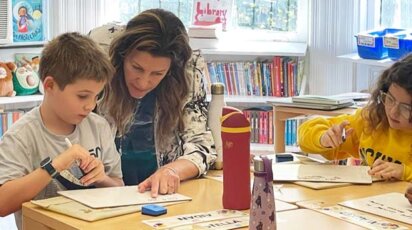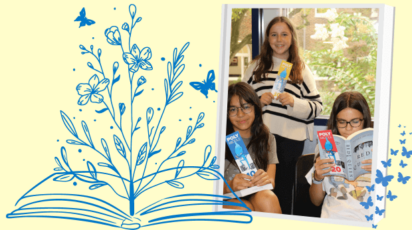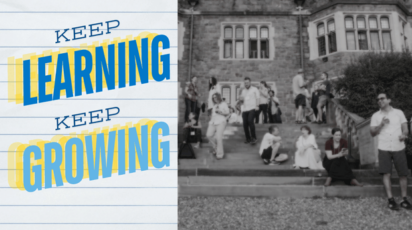News
Head of School Audrius Barzdukas P’20 congratulated the Class of 2021 in advance of their virtual Senior Plan, the Senior Capstone presentations on Friday, May 28. “Learning is not just the taking in, but the sharing of knowledge and adding to the body of human knowledge,” he said. “Today, you are going to share your knowledge. Congratulations!”
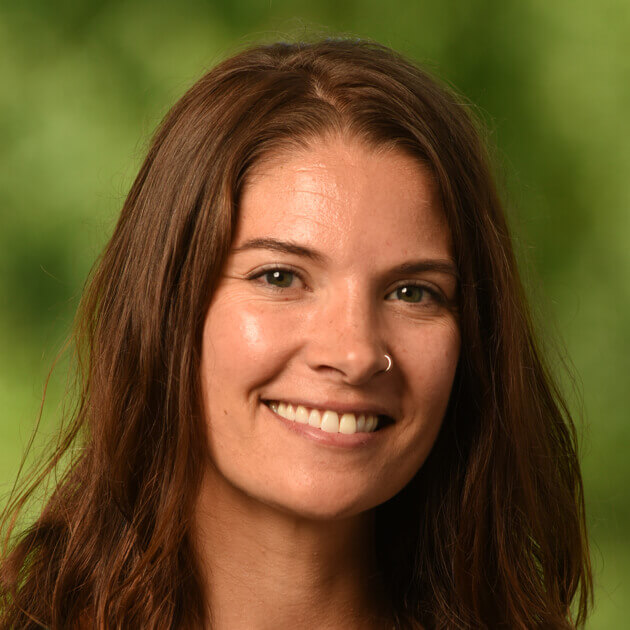
Head of Upper School Sarah Bates welcomed the students and faculty to “one of the best days of the year” as the celebration is the culmination of four years of learning.
The Capstone presentations were grouped into 41 subject panels according to similar themed projects with three students presenting in each panel to faculty members during four sessions through the morning and early afternoon.
Grade 12 students take one semester of Senior Capstone as a graduation requirement at Poly. Alumni knew this project as Senior Plan, which started in 1985 with projects on topics under the broad themes: Education, Literature, Science, and Politics.
How Capstone Works
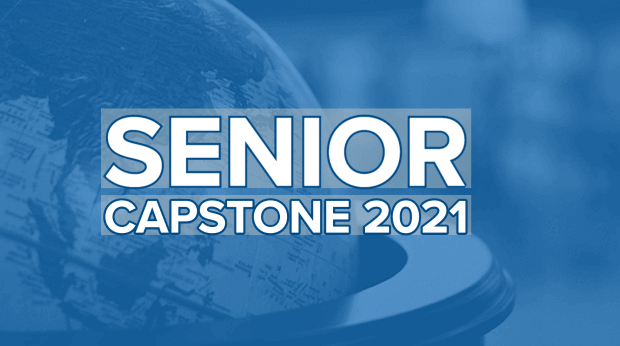
Senior Plan is now supported by a once-weekly course in which students are grouped by theme: Community Engagement; Humanities & Social Sciences; Math, Science & Technology; or Visual & Performing Arts. In these groups, students receive guidance, collaborate with each other, and report on their work. Faculty members chosen to be Senior Plan Teaching Fellows in their fields lead students through the key stages: choosing a topic, articulating a focused line of inquiry, researching, determining a response to the research question, synthesizing findings, and reflecting on the process of learning.
Emily Gardiner P’24, ‘27, Chair, Upper School Deans, and Dr. Virginia Dillon, history teacher, are current co-chairs of Senior Capstone. “We took over from the inimitable and inspiring Louise Forsyth, former history chair,” said Gardiner. They introduced the concept of a faculty reviewer, someone in a field related to the senior’s topic, who could evaluate their work at several key points. The projects are evaluated based on the initial research question; review of sources; a first draft response to your research question; outline; abstract of 250 words; and final portfolio.
Senior Capstone Presentations
Topics for the presentations were wide ranging and timely. Among them were: Perspectives on the Pandemic; Art in Historical Context; Causes and Effects of Inequality; Shaping and Reshaping Identities; Education Best Practices; Texts & Contexts; Talent, Creativity & Commerce; U.S. History in the Present; Art as Sociopolitical Expression; Community, Marginalization & Support; Technology, and Health & the Body. Here is a sampling of some of the presentations from the day.
In a panel, Perspectives on the Pandemic, Avery Myers ’21 spoke about how young children have dealt with remote learning and the effects on children’s social development. She noted the lack of many service resources, such as food or after-school care, for children when school is closed.
Josh Hartley ’21, in his study of the 1915 film “Birth of a Nation” as a catalyst for the resurgence of the Ku Klux Klan, used clips from the film showing how it was used as a recruitment tool. He noted that the film was censored in New York City.
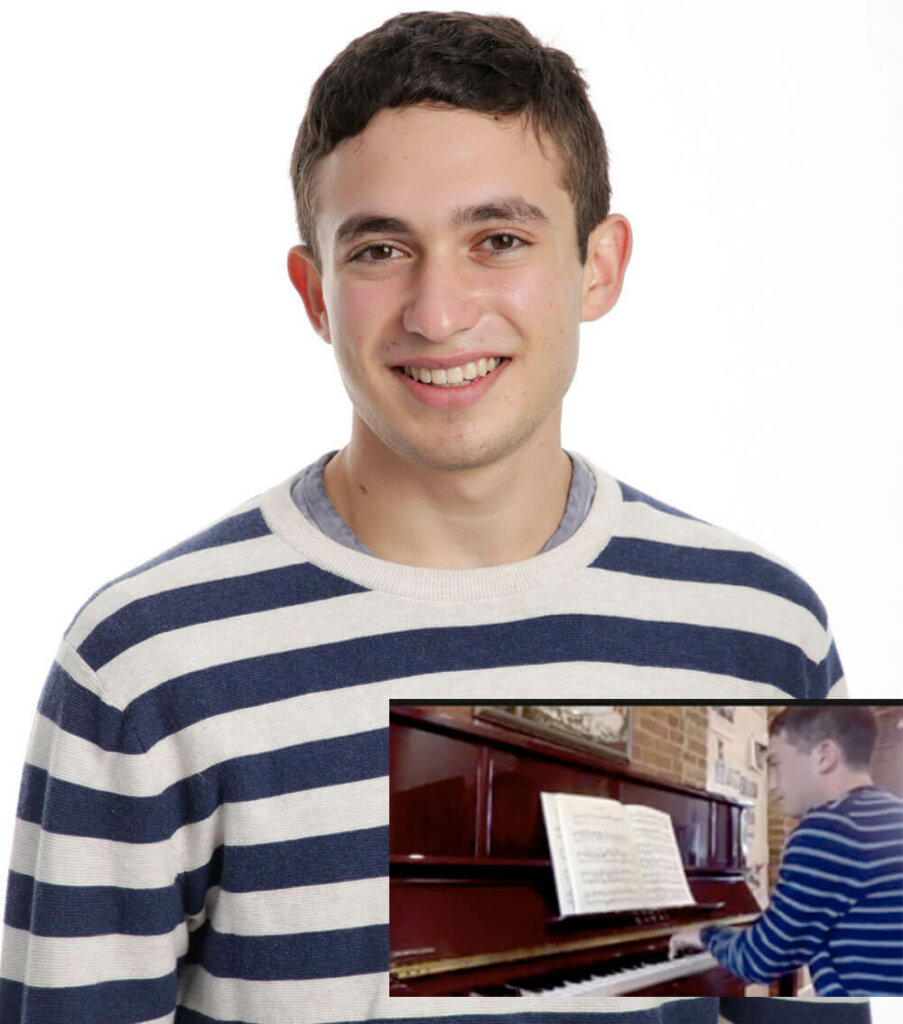
In his presentation, Isadore Axinn ’21, at his piano at home, talked about classical music as a genre, playing pieces by Bach and Brahms to demonstrate the difference between the Baroque and Romantic styles. He considered how we access music today and what that might look like in the future.
Lola Stephens ‘21 explained how diets affect our microbiomes, our gut health, and how the diets of Americans living in poverty suffer in a system that “prioritizes profits over health.” David Doumar ’21 followed with a discussion of “Food Deserts,” noting that 1.3 million New Yorkers are food insecure and many suffer from obesity or diabetes because of the lack of healthy food choices. He suggested fresh fruit carts in areas as an alternative to snack foods from bodegas.
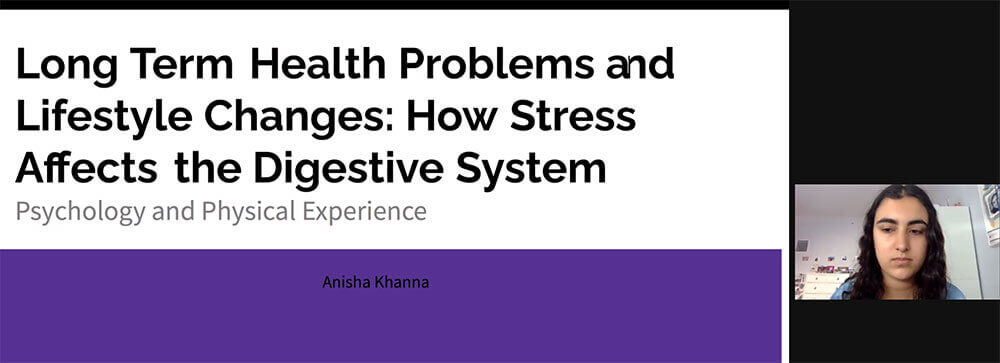
Anisha Khanna ’21 focused on the long term digestive health problems due to stress. She offered that improvements in GI issues can be seen after making lifestyle changes and being open to using alternative treatments.
Julia Schnipper ’21 discussed the impact of computerized medicine on both patient experience and patient outcomes concluding that there are huge advantages to what technology brings to medicine (robotic surgery, CAD radiology reports, etc), but there are many factors to consider to ensure equity and safety, as well as economic benefits.
In her presentation, Charlotte Knutsen ’21 considered Arts Education and American Inequity noting that some students have benefitted from privilege, especially in independent schools, but that all students, if given the opportunity, can benefit throughout their academic classes from learning to make music.
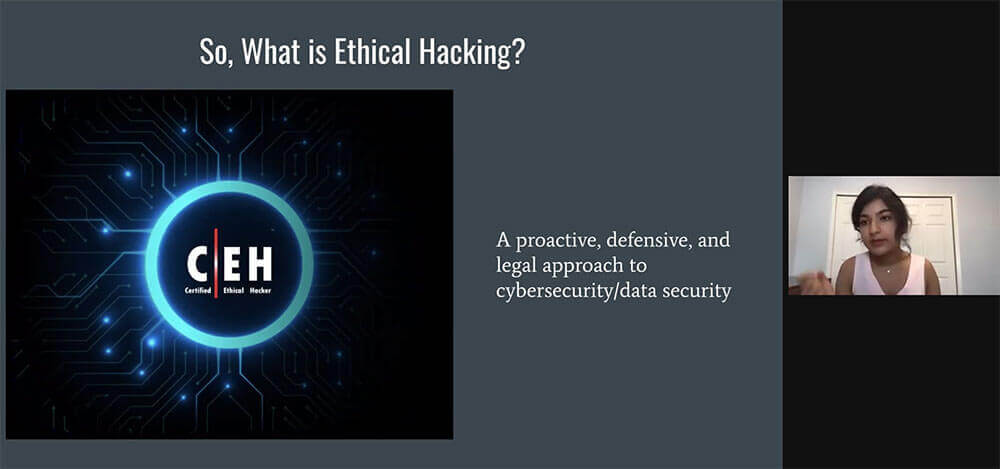
With so many reports of malicious hacking in the news, it seemed particularly timely that Guari Purohit ’21 focused her presentation on a “proactive, defensive, and legal approach” to cyber and data security in her presentation entitled “When the Bad Guys Are Actual Good: The Rise of Ethical Hacking & The Evolution of Cybersecurity in the Modern Age,” stating her interest in cyber security stems from both her father’s profession and the CS4CS Computer Science for Cyber Security Summer Program at NYU Tandon School of Engineering she attended. She also gave a shoutout to Poly faculty members Head of Technology Charles Polizano P’18, Jean Belford, and Ben Farrar, and Michael Rosenberg. Beyond the revenue losses a data breach can inflict on a business, it also can affect the company’s reputation, losses of intellectual property, as well as “hidden” costs of regulatory and legal fees, negative press, customer backlash, etc. Ethical hacking isa useful tool in the fight against data breaches and helps companies be proactive in their security, rather than reactive.
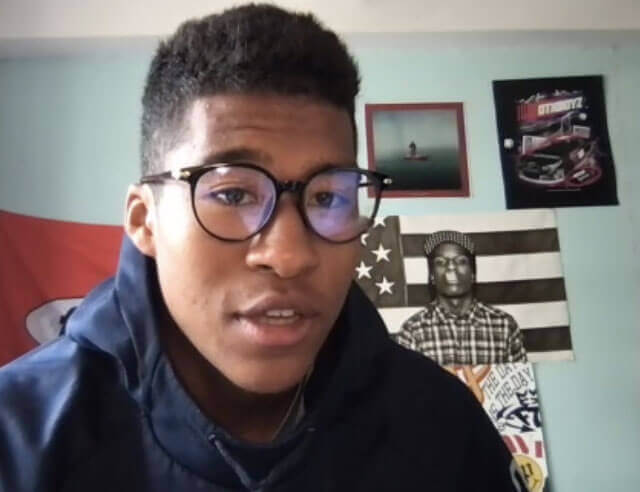

In a panel on Talent Creativity & Commerce, Matthew Graham ’21 considered “Mid-century modern and consumer culture,” and architecture, using the observations of architectural critic Lewis Mumford, historian Vincent Scully, and architectural historian Alice Friedman.
Taejun Kim-Grant ’21 focused on hip hop and the “technological and consumer developments” in the genre. He noted how “streaming music can break the label model” and how rappers interact with their fans on social media.
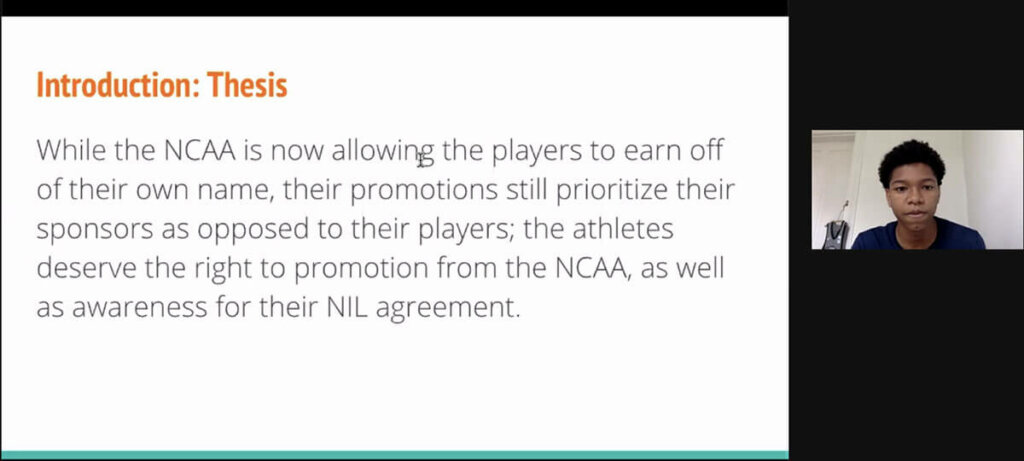
Davonte Fuentes ’21 considered the NCAA and whether college basketball players should be compensated. He noted the financial losses that colleges suffered without in-person games in 2020 and also the idea of basing the value of an athlete on their social media following.
In one of the panels during the last session of the day, students considered Art as Sociopolitical Expression. Kadyn Liburd ’21 focused on “Activist Art.” She considered art globally and made the point that “empathy is core to self and other understanding.” Liburd used examples of a Black Panther booklet, anti gentrification efforts in Seoul, S. Korea, and mimes used to direct traffic in Bogota, Colombia. In her study of “World War I art/cultural innovation,” Golda Bonjean-Alpart ’21 discussed how the war influenced the art movements of Dadaism, Surrealism, and Cubism.
Lola Williams ’21, herself a dancer at Poly, reported on her study of the “Black arts movement and Eleo Pomare” and how dance can be educational and a vehicle of activism. Pomare was a Colombian-American modern dance choreographer who was known for his political works during the 1960s. Williams recreated some of Pomare’s dance poses in photos she shared at the end of her presentation.
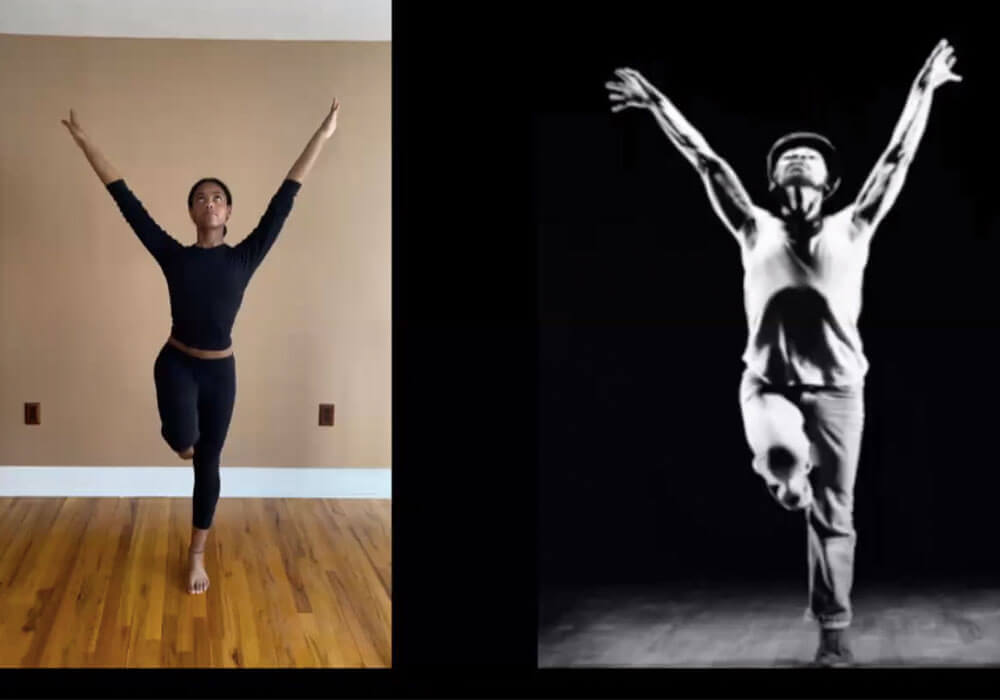
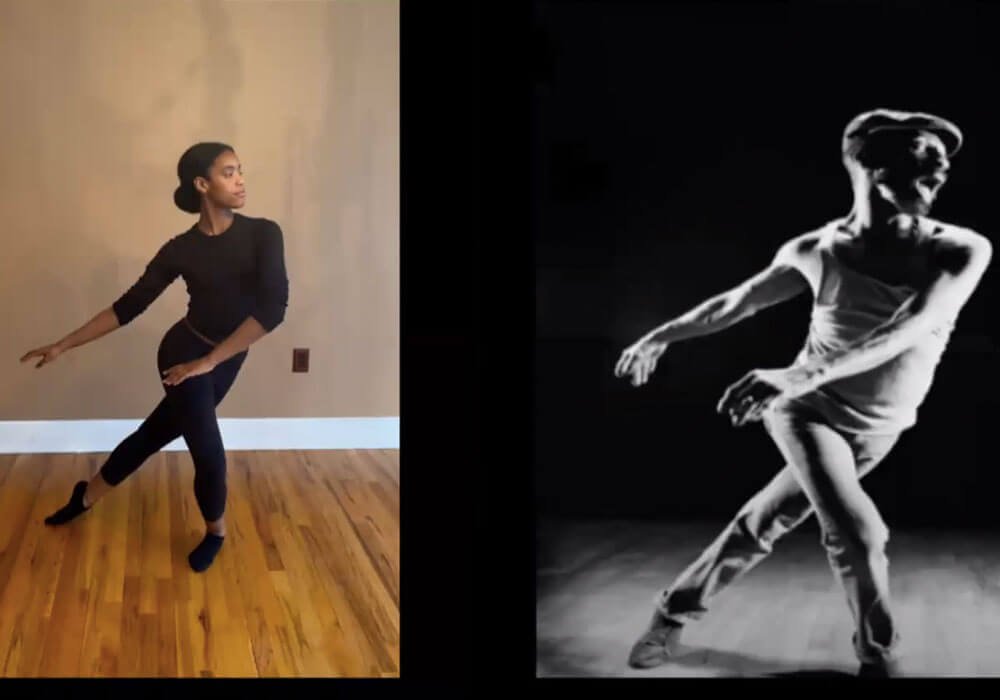
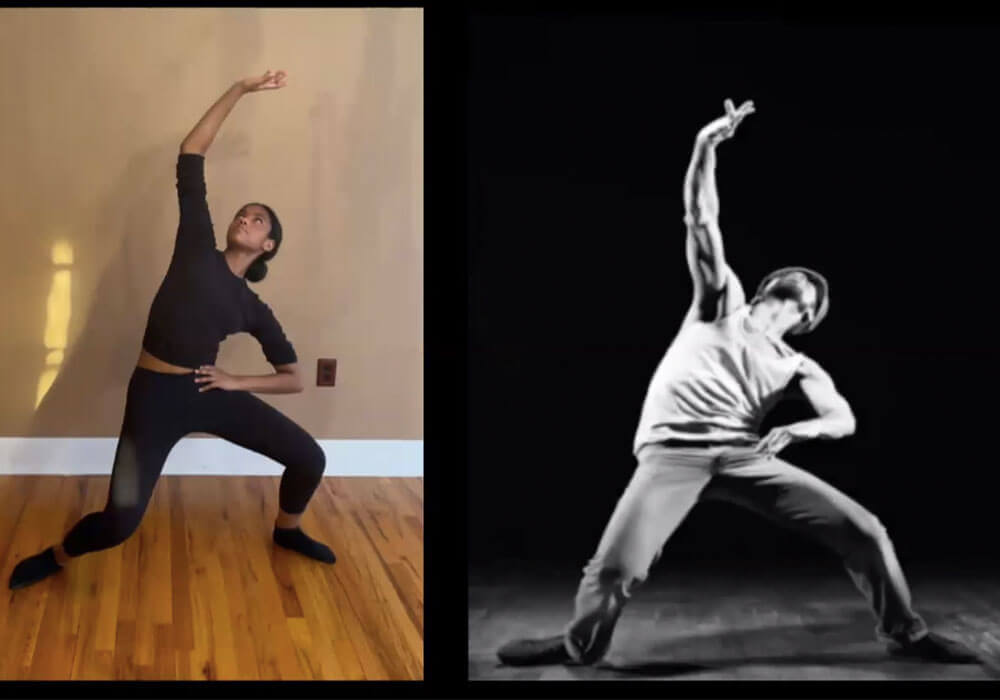
Distinction Earned for Senior Plan Capstone Projects
On June 2, Bates announced and congratulated students who earned distinction on their Senior Capstone project. “Your dedication, thoughtfulness, and commitment to intellectual pursuits was nothing short of impressive,” she said. “Thank you for giving us so much; we are exceptionally proud of you!”

